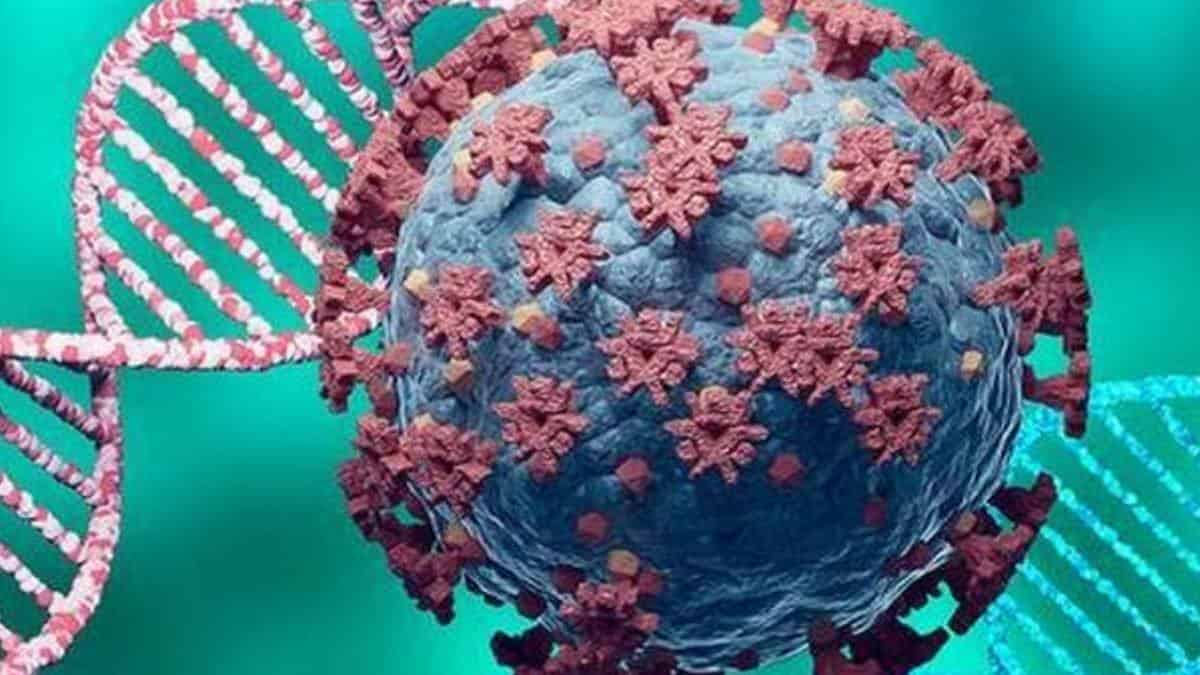Is COVID-19 third wave coming after the discover of Omicron Variant?

As the world reopens after 18-20 months of lockdowns and the Covid-19 pandemic, a new coronavirus variety, B.1.1.529, has been detected in South Africa and dubbed ‘Omicron.’ This has alarmed scientists, who fear that this new strain will spark epidemics in multiple nations, wreaking havoc on health systems once more.
In South Africa, where the ‘Omicron’ variety is gradually becoming the dominant one, over 100 cases have been discovered.
What is the significance of the name ‘Omicron’?
New strains of the virus have been given Greek alphabet letters by the WHO. This one should have been designated ‘Nu’ according to the Greek alphabet’s sequence. However, it was left out since it can be misconstrued with the term ‘new.’
The following Greek letter is ‘Xi,’ however, it was also omitted because it shares the same name as Chinese President Xi Jinping! As a result, Omicron got ahead of the line.
So far, what do we know?
Here are five things you should know about this deadly super Covid version that has led a number of countries to ban travel from South Africa and other countries in the region, including the United Kingdom, Israel, Italy, and Singapore.
According to South African health experts, the ‘B.1.1.529’ variety has far more mutations than scientists expected, particularly after a particularly severe third wave triggered by the Delta variant. Many of the alterations are immune evasion and transmissibility concerns.
The spike protein in ‘Omicron,’ which plays a vital role in the virus’s entry into human cells, has a significant number of mutations. The B.1.1.529 variant has 50 mutations in total, with more than 30 of them affecting the spike protein, which is the target of most current Covid vaccines.
The World Health Organization (WHO) has stated that determining the impact of the new variation will take a few weeks. It is the most severely mutated variant yet, according to scientists, which implies vaccines based on the original strain from Wuhan, China, may not be as effective. The World Health Organization has convened a meeting to discuss the Omicron variant and determine if it will be designated as a variant of concern.
The virus was first discovered in South Africa this week and has since spread to neighboring nations such as Botswana. “In a person who returned from Malawi,” Israel discovered a Covid-19 variant with a considerable number of mutations. In Hong Kong, two cases have been discovered. India has demanded that travelers from South Africa, Botswana, and Hong Kong be thoroughly screened.
The origin of the variation is still a subject of debate. The new strain “likely arose after a chronic infection of an immuno-compromised person, possibly in an untreated HIV/AIDS patient,” according to Francois Balloux, Director of the UCL Genetics Institute in London.
Here’s what experts know about the new Covid version ‘Omicron,’ according to scientists.
What makes scientists so concerned?
On its spike protein, the variant has more than 30 mutations, more than twice as many as Delta. This has sparked worries that earlier infection/vaccination-induced antibodies may no longer be effective.
Is it possible that I’ll become infected?
Scientists believe that persons who have previously been infected with the virus will be more susceptible to infection or reinfection.
Is it more easily transmitted?
The image that is emerging is frightening. In South Africa, the number of cases has risen from 273 on November 16 to more than 1,200 at the start of this week.
Will immunizations be effective against the new strain?
According to scientists, the variation has evolved the potential to escape existing immune defences. Antibodies are being tested to see how successful they are in neutralising the new type. Scientists believe that existing antibodies will recognise the variation, but not totally. So, the current vaccines may give less protection.
Will it result in a worsening of Covid?
There is currently no information available about this. Because there is a time lag between infections and more serious illnesses, it will be several weeks before any definitive information is available.
Is it possible to modify existing vaccines to combat the virus?
Scientists are working on incorporating the novel spike protein into current vaccinations in order to render the new variation useless.
How quickly will the variation spread over the globe?
The bulk of confirmed cases are currently concentrated in South Africa, Botswana, and Hong Kong. In addition, a case has been discovered in Israel.
Because community transmission exists in South Africa, the novel variety is likely to have spread unnoticed to other nations.
What precautions should you take?
Make sure you get both of your jabs. Masks should be worn. Make sure there’s enough space between people and that the rooms are well-ventilated. Large gatherings should be avoided. Hand hygiene should be practiced.


